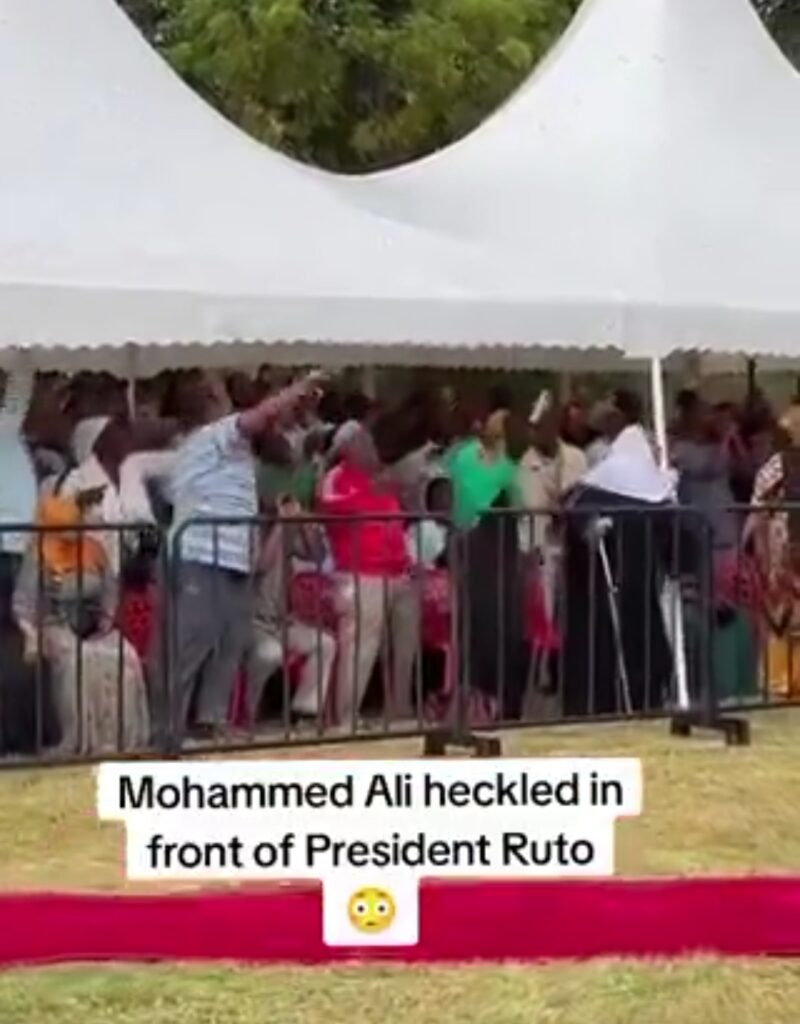During a recent rally in Mombasa, investigative journalist Mohammed Ali, commonly known as Jicho Pevu, experienced a surprising moment as he was heckled by the crowd while addressing the public.
Once renowned for his hard-hitting exposés, Ali, who is now a Member of Parliament, found himself at the center of controversy, drawing a mixed reaction from the audience.
The incident occurred during an event attended by President William Ruto, adding a layer of tension to the proceedings.
The crowd’s reaction seemed to stem from discontent with Ali’s current political stance, which some feel diverges from his previous journalistic endeavors.
As Ali took the stage, murmurs and boos could be heard, indicating a disconnect between his current political role and the expectations of some attendees.
This reception highlights the complexities politicians face when transitioning from journalism to politics, where past actions and perceived shifts in principles can influence public perception.
President Ruto, present at the rally, maintained a composed demeanor despite the disruption.
The incident underscores the broader challenges within Kenyan politics, where public figures often face scrutiny and fluctuating levels of support.
For many in the crowd, the heckling may have been a reflection of broader frustrations with political figures, as citizens continue to demand accountability and transparency from their leaders.
The Mombasa rally, intended as a platform for addressing key issues and garnering support, instead showcased the diverse sentiments of the public.
It served as a reminder that political figures, regardless of their previous careers, must continually engage with and address the concerns of their constituents.
As the political landscape in Kenya evolves, such incidents underscore the importance of maintaining a genuine connection with the public and remaining responsive to their needs and expectations.


